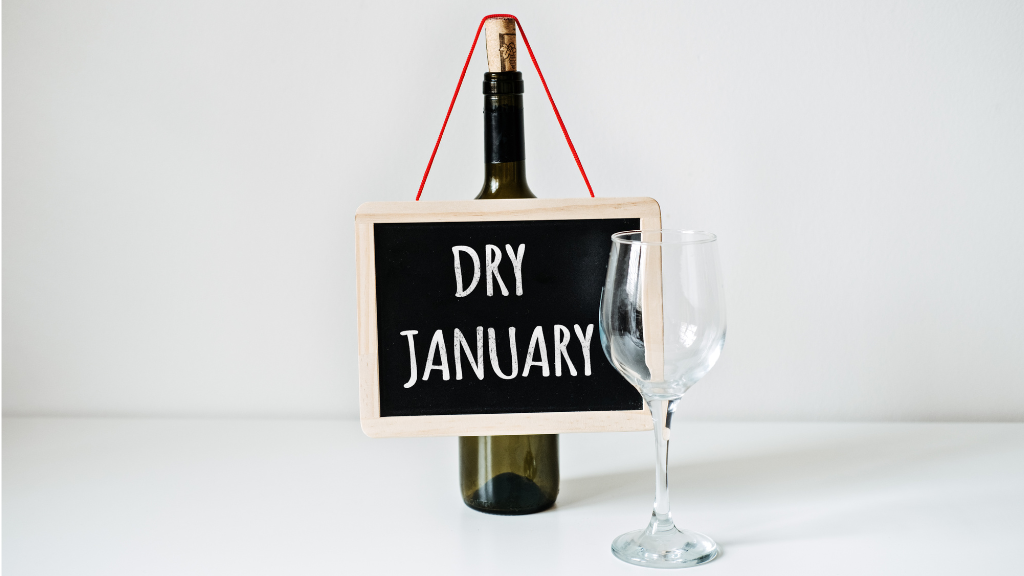We’ve almost made it through the first month of 2024. The holidays are behind us, full of food and fun and drink, often alcoholic in nature. But, when the dust settles, oftentimes folks are swearing off alcohol for the month in the form of Dry January. In some cases, January ends and some choose to take more time away from alcohol or remove it from their lives entirely. This can be for many reasons – dependence or wanting a healthy lifestyle – but one factor you might not think of is climate.
I chose for myself to part ways with alcohol in February of 2022, and while climate wasn’t one of my initial reasons, I decided to dig into the topic (mostly to try and find more reasons to keep alcohol out of my life) and found that the alcohol industry has more of an impact on climate than I had really thought about.

By Jillian Youngbird. Jillian is BTG’s Social Media Coordinator.

Emissions
From Movendi International NGO
“According to the BBC Climate Change Food Calculator alcohol, particularly beer, fuels climate change. When calculating for emissions from one pint of beer – taken 3 to 5 times a week and within the guidelines for alcohol use provided by NHS – it amounts to 139kg of greenhouse gas emissions per year.”
And according to a Manchester University Study conducted in 2020, the “global alcoholic beverage industry produces around 1.5 gigatons of greenhouse gas emissions annually, which is comparable to the emissions of around 276 million cars.” Everything from growing the ingredients needed for fermentation, manufacturing and packaging, to fuel used shipping these products around the world – it all contributes to climate change. In addition to this, in many cases, especially in the production of beer, up to 92% of brewing ingredients are wasted.
Pollution + Water
On average, manufacturing factories use 95.1 kWh of electricity and 536,500 Btu of natural gas per square foot annually. Not only do factories that use large amounts of energy cause air pollution, but they also pollute the freshwater that surrounds them. Clean water is often a resource we take for granted, and it’s one many don’t have access to. 60% of all spirits and 90% of beers are made up of water, requiring huge amounts of water to be used per year on alcohol production.
Packaging
Overall, beverage packaging is only recycled at a rate 24% annually in the US. A large portion of that un-recycled percentage is alcohol packaging. And while recycling of packaging hasn’t gone up much, the rise in demand for alcohol has increased exponentially since the 1990s. And while many manufacturing companies are taking in growing demand for more sustainable packaging, it isn’t happening everywhere, and recycling rates are too low.
While data is limited compared to other industries, the evidence points to the alcohol industry having an overall negative impact on climate.
So what can you do?
Cutting out alcohol entirely, or cutting back if you haven’t already is a great option. Choosing options that are more sustainable is also a great place to start.
Like with many industries, choosing to buy locally puts less demand on global shipping.
Boulevard Brewing Co., based here in KC, has been working toward becoming a zero landfill brewing operation since 2010, recycling and composting waste. Boulevard also collaborates with local environmental programs and organizations (like BTG!) to help raise money and awareness. You can find out more about what Boulevard is doing to work toward sustainability by visiting their website. You can also encourage your local breweries to take on more sustainability initiatives.
Try to choose packaging options that are more easily recycled like aluminum cans and glass bottles, avoiding plastics when you can. Be sure to follow local recycling guidelines. Ripple Glass, originally created by the folks at Boulevard back in 2009, has made it easier to recycle glass bottles, with bins in many locations around the KC.
Personal responsibility when it comes to climate is of course only one part of a much larger issue, but thinking about how your choices contribute to the collective can help guide your consumption decisions. Determining your relationship with alcohol is deeply personal, but moderation is important for your own health and the health of the planet. For me, cutting out alcohol has been the best decision, and knowing that it has made even the smallest impact on my own carbon footprint has been a reinforcing component in my sobriety.
*For substance abuse resources and information visit https://www.samhsa.gov/find-help/national-helpline






